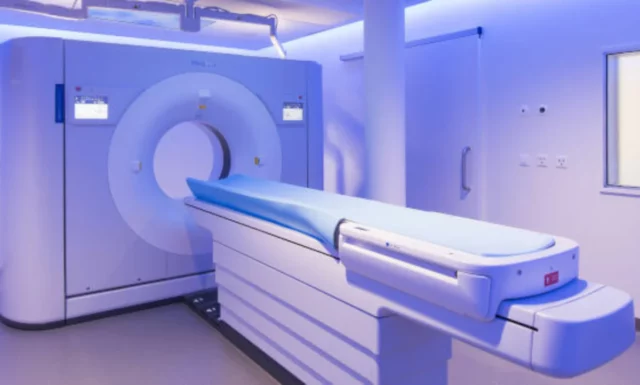Nuclear medicine is a medical specialty that uses different types of one hundred percent safe techniques for the diagnosis and treatment of a wide variety of diseases. It is, without a doubt, one of the most important advances in the area of medicine and technology.
Of course, to make the most of all the benefits of nuclear medicine, it is essential to have the most modern equipment and the best professionals in the area, essential for an adequate diagnosis.
Advantages of Nuclear Medicine
Nuclear medicine, as we mentioned before, is a specialty that uses different types of equipment and techniques, with the aim of making much more precise diagnoses, which makes it easier for the specialist doctor to be able to establish an adequate treatment. Below we share some of the most powerful reasons why nuclear medicine is key to the diagnosis and treatment of a large number of diseases and conditions.
Security
The studies carried out in nuclear medicine are completely safe for patients, and as an added bonus, they are completely painless. In this sense, it is important to highlight that the drugs used are usually composed of molecules that the body uses naturally for its proper functioning.
On the other hand, when it comes to radiation levels, they are usually very low, almost like a traditional chest X-ray. Although it is important to note that these levels could vary depending on the study to be carried out.
Diagnosis
Thanks to nuclear medicine, it is possible to make a much more precise and accurate diagnosis, which translates into more advantages for the patient when receiving more effective treatment. These types of studies have a high level of sensitivity in terms of all the true positives detected by the tests and the total number of people who are sick. In addition, it is important to remember that a good diagnosis is the basis for increasing the chances of success in any field and treatment.
Comfort
The different studies carried out in the area of nuclear medicine are completely painless for patients, that is, they are not tests that could be annoying, uncomfortable or painful. On the contrary, the patient will be completely comfortable during their performance. In addition, in the vast majority of cases, it does not require any type of prior preparation.
Types of diagnostic tests
Thanks to the advancement of medicine and technology, today there are a large number of diagnostic tests. Here we share some of the most prominent:
Scintigraphy
– This test is one of the most used in nuclear medicine, and thanks to it, it is possible to obtain an image of the different organs, which is key to making diagnoses and monitoring. For this, a drug that contains radioactive substances is used. Within scintigraphy there are specialties, such as bone or thyroid scintigraphy.
Single or single photon emission tomography, also known by its acronym as SPECT
– radiopharmaceuticals are used for this test and are distributed throughout the body. It is a test that does not require any prior preparation. It is a very useful study to know the molecular alterations of a specific organ.

Positron emission tomography or PET
–For this test, drugs are also distributed throughout the body, but they are different substances from those used by SPECT. This type of study is key to obtaining more specific information about the functioning of a specific organ. Nuclear medicine represents one of the best advances in medicine and is decisive for making clear and accurate diagnoses. In addition, the equipment is becoming more powerful, more precise and generates fewer side effects, not to mention that these are comfortable tests for patients. The important thing is always to perform them in the best and most experienced diagnostic centers, in order to obtain a reliable result.

